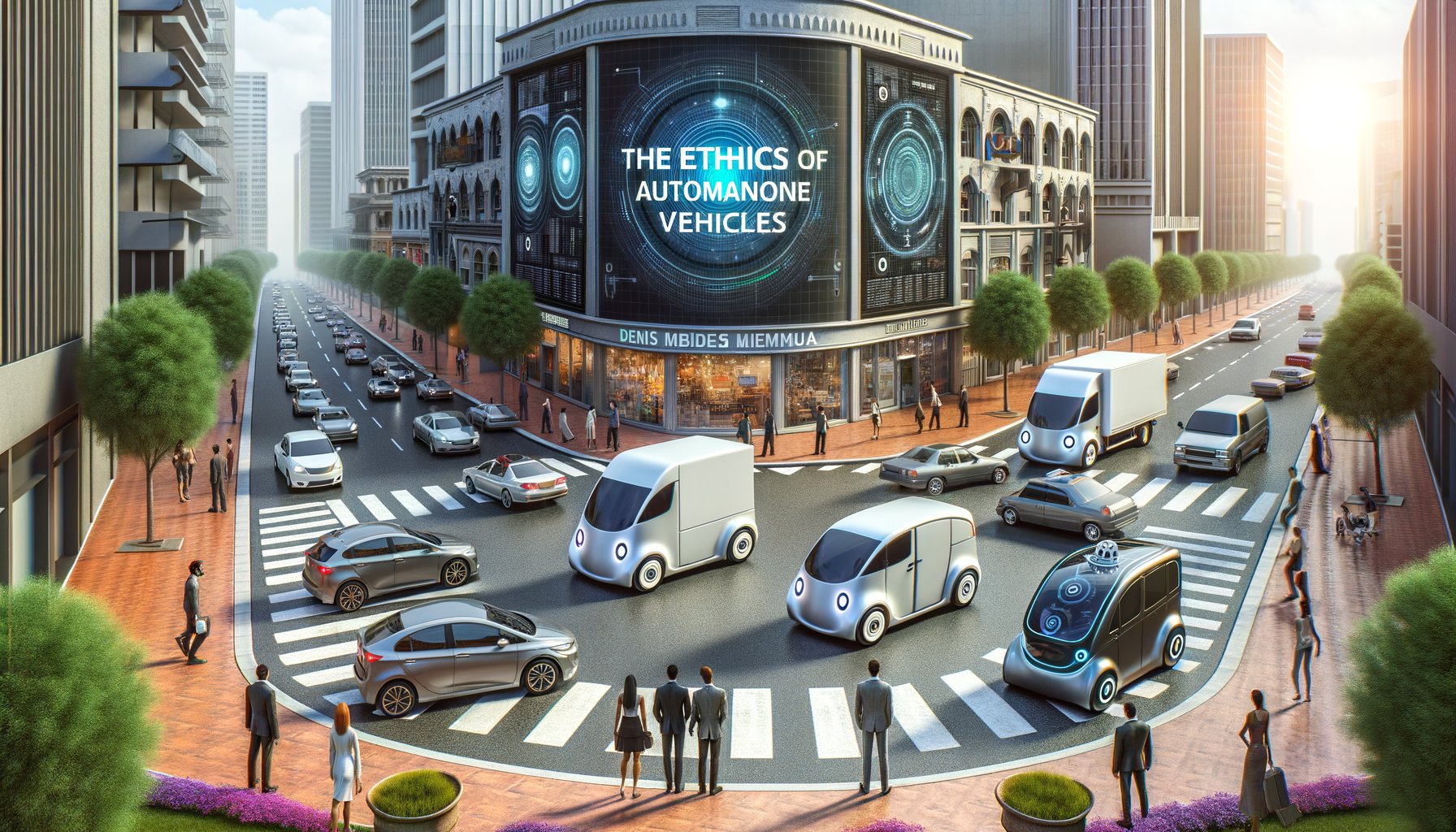Physical Address
304 North Cardinal St.
Dorchester Center, MA 02124
Physical Address
304 North Cardinal St.
Dorchester Center, MA 02124

Autonomous vehicles (AVs), also known as self-driving cars, are no longer a mere concept relegated to science fiction. They have transitioned from the drawing boards to our roads, promising to revolutionise the way we commute. However, as this technology advances towards mainstream adoption, it brings with it a host of ethical dilemmas that society must grapple with. This article delves into the complex ethical issues surrounding autonomous vehicles and how they are altering our understanding of responsibility and decision-making on the road.
One of the most widely discussed ethical conundrums in relation to autonomous vehicles is a modern adaptation of an old philosophical thought experiment called ‘The Trolley Problem’. In its original form, the problem presents a scenario where a runaway trolley is heading towards five workers on the track. You can divert it onto another track where only one worker is present. The question then arises – should you intervene?
In the context of AVs, this moral dilemma takes on a new dimension. Imagine an autonomous vehicle faced with two unavoidable options: swerve and hit a pedestrian or continue straight and collide with another car potentially harming its passengers. How should the car’s algorithms decide? This question raises profound ethical implications about programming morality into machines.
The crux of algorithmic decision-making lies in determining whose lives take precedence in an unavoidable accident scenario. Should an autonomous vehicle be programmed to prioritise passenger safety over pedestrians or vice versa? Or should it minimise overall harm regardless of who is involved?
This issue becomes even more complex when considering potential variations in scenarios – children versus adults, multiple people versus single individuals, law-abiding citizens versus those breaking traffic rules. Programming ethical decision-making into a machine is not just a technical challenge but also an intensely moral one. It requires a consensus on the value of life and the principles that should guide automated decisions, a consensus that is difficult to achieve in our diverse society.
Another significant ethical issue revolves around responsibility and liability in the event of autonomous vehicle accidents. In traditional vehicular accidents, liability typically falls on the driver. But who should be held responsible when an autonomous vehicle crashes – the owner, the manufacturer, or the software developer?
This question challenges our conventional understanding of responsibility and necessitates new legal frameworks for autonomous vehicles. The issue becomes even murkier when considering semi-autonomous vehicles where both human drivers and automated systems share control.
Autonomous vehicles rely heavily on data collection for their functioning – from GPS coordinates to personal information about passengers. This raises important questions about data privacy and surveillance. Who owns this data? How can it be used? And how can passenger privacy be protected?
The potential misuse of this data for commercial gain or malicious intent presents a serious ethical concern. Ensuring robust data protection measures are in place will be crucial as we move towards a future dominated by autonomous vehicles.
The advent of autonomous vehicles also brings up issues related to fair access and equity. Will everyone have equal access to this technology or will it widen existing socio-economic disparities? Will rural areas enjoy the same benefits as urban centres? These are pivotal questions that must be addressed to ensure equitable distribution of AV benefits.
In conclusion, while autonomous vehicles hold immense potential for improving road safety and transforming our commute experiences, they also present complex ethical dilemmas that demand careful consideration. As we stand at this technological crossroads, it is crucial that we navigate these ethical challenges with a balanced and thoughtful approach to ensure the responsible development and deployment of autonomous vehicle technology.